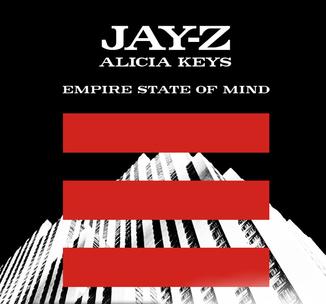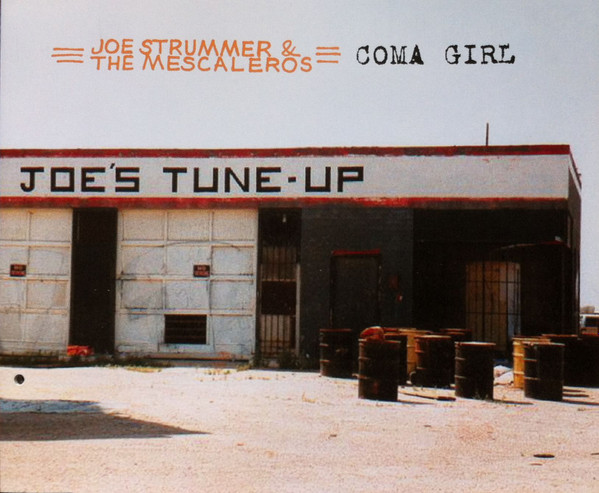 “Smile” by Lily Allen remains one of the most striking and memorable pop debuts of the 2000s, a track that effortlessly combined catchy, upbeat melodies with biting lyrics and a wickedly cheeky sense of humor. Released in 2006 as the lead single from her debut album Alright, Still, “Smile” introduced the world to Lily Allen’s unique brand of pop—a mixture of ska, reggae, pop, and sharp-witted lyricism that was both playful and brutally honest. At its core, the song is a breakup anthem unlike many others, because instead of wallowing in sadness or leaning into empowerment clichés, Allen delivered a song about schadenfreude, about finding joy in seeing an ex who had hurt her suffer. That sentiment, wrapped in deceptively sunny instrumentation, was as bold as it was refreshing, and it made “Smile” one of the defining tracks of mid-2000s pop culture.
“Smile” by Lily Allen remains one of the most striking and memorable pop debuts of the 2000s, a track that effortlessly combined catchy, upbeat melodies with biting lyrics and a wickedly cheeky sense of humor. Released in 2006 as the lead single from her debut album Alright, Still, “Smile” introduced the world to Lily Allen’s unique brand of pop—a mixture of ska, reggae, pop, and sharp-witted lyricism that was both playful and brutally honest. At its core, the song is a breakup anthem unlike many others, because instead of wallowing in sadness or leaning into empowerment clichés, Allen delivered a song about schadenfreude, about finding joy in seeing an ex who had hurt her suffer. That sentiment, wrapped in deceptively sunny instrumentation, was as bold as it was refreshing, and it made “Smile” one of the defining tracks of mid-2000s pop culture.
Lily Allen’s rise was very much tied to the changing landscape of music promotion in the mid-2000s. Before “Smile” even became a radio staple, Allen was generating buzz online through MySpace, a platform that gave emerging artists a way to connect directly with audiences without traditional gatekeepers. This digital word of mouth helped build anticipation for her music, and when “Smile” officially arrived, it quickly became clear that Allen wasn’t just another pop singer—she was a storyteller with an edge, someone who could pair a sweet voice with sharp observations about relationships and society. The song’s success was both a product of its undeniable hook and of Allen’s emerging persona: witty, unfiltered, and unapologetically honest.
Musically, “Smile” borrows heavily from ska and reggae influences, creating a laid-back groove that almost makes listeners forget how venomous the lyrics really are. The instrumentation is light, playful, and sunny, complete with bouncy horns, offbeat rhythms, and a warmth that recalls classic ska revivalists as much as contemporary pop. This musical brightness creates an ironic counterpoint to the subject matter. While Allen is singing about being pleased that her ex is miserable, the arrangement could easily fool a casual listener into thinking it’s a love song or a happy memory. That tension between sound and meaning is what makes “Smile” such an effective piece of pop songwriting. The production, handled by Future Cut, struck the perfect balance between retro influences and modern pop sensibilities, ensuring that the song felt both familiar and fresh when it hit the airwaves.
Lyrically, Allen holds nothing back. She details the aftermath of a breakup with an unflinching honesty, reveling in the misfortunes of her ex and expressing relief that the relationship is over. One of the most memorable aspects of the song is how conversational the lyrics are, almost like diary entries set to music. Allen sings with a kind of wry detachment, describing how she once cried and struggled but now finds joy in watching her former partner flounder. It’s a lyrical stance that flips the script on traditional breakup songs; instead of painting herself as a victim or trying to heal through empowerment, Allen revels in her own petty satisfaction. This approach resonated with many listeners because it felt real—who hasn’t, at some point, secretly enjoyed seeing someone who hurt them get their comeuppance? By giving voice to that messy, often unspoken feeling, Allen struck a chord with audiences worldwide.
The success of “Smile” was enormous. It became a number one hit in the UK, staying at the top of the charts for weeks and quickly earning Allen recognition as one of the most exciting new voices in British pop. Its success also translated internationally, introducing her to audiences in the United States and beyond. The song’s popularity was bolstered by its memorable music video, which perfectly captured the cheeky and slightly mischievous tone of the lyrics. In the video, Allen is seen orchestrating elaborate pranks and acts of sabotage against her ex, all while maintaining her signature sly smile. The visuals, much like the song itself, walked a fine line between humor and cruelty, and it was this playful darkness that made the package so compelling.
Beyond its immediate success, “Smile” helped set the tone for Lily Allen’s career and for a broader wave of pop music in the mid-2000s. At a time when much of mainstream pop was polished, glamorous, and often impersonal, Allen offered something different: raw honesty, wit, and a refusal to conform to industry expectations. “Smile” was the perfect introduction to her style because it showcased not just her musical abilities but also her personality. Listeners weren’t just hearing a song; they were being invited into Allen’s worldview, one that was unapologetically female, witty, and willing to expose the ugly sides of relationships without sugarcoating.
The cultural resonance of “Smile” also cannot be overlooked. It became a kind of anthem for a generation of listeners who were tired of overly polished pop narratives and who craved music that reflected real emotions—even the messy, vindictive ones. Allen’s ability to deliver such sentiments with charm and humor made “Smile” feel less like bitterness and more like empowerment through honesty. It wasn’t about wallowing in heartbreak, but about laughing through the pain and finding joy in the imperfections of life and love. That ethos connected with many fans, especially women, who saw in Allen a voice that was both relatable and rebellious.
From a critical standpoint, “Smile” was praised for its originality and boldness. Critics admired Allen’s willingness to be vulnerable while also being cutting, and many noted how the song’s sunny production masked its darker themes in a way that was both clever and effective. The juxtaposition of sweet melodies with biting lyrics became something of a signature for Allen, and it started with “Smile.” The song demonstrated that pop music didn’t have to be one-dimensional; it could be layered, ironic, and filled with personality.
Over time, “Smile” has maintained its place as one of Lily Allen’s most iconic songs. Even as her career evolved, with later albums exploring more mature themes of motherhood, fame, and politics, “Smile” remained a cornerstone of her catalog, the song that first introduced her voice to the world. It has been featured in countless playlists, compilations, and retrospectives about 2000s pop, often highlighted as one of the defining songs of the decade. Its legacy lies not only in its chart success but in its influence, showing how pop music could be both deeply personal and broadly appealing.
Looking back, “Smile” feels like more than just a debut single—it feels like a mission statement. It told the world that Lily Allen wasn’t going to play by traditional pop star rules. She wasn’t going to hide her emotions or conform to expectations about how women in pop should behave. Instead, she was going to sing her truth, even if it was messy, contradictory, or unflattering. That courage, paired with her undeniable talent for melody and storytelling, ensured that “Smile” would endure as a classic.
What makes “Smile” particularly powerful even now, nearly two decades after its release, is its universality. The specific details may belong to Allen’s life, but the emotions are ones that countless people can relate to. That blend of personal authenticity and universal resonance is what all great pop songs strive for, and “Smile” achieves it effortlessly. It’s a song that makes listeners laugh, nod in recognition, and maybe even feel a little less guilty about their own moments of petty joy.
Ultimately, “Smile” by Lily Allen is a perfect example of how pop music can be both entertaining and meaningful, lighthearted and profound. It’s a song that wears a bright exterior while carrying a sharp sting beneath the surface, a reflection of life’s contradictions and complexities. By daring to present those contradictions with humor and honesty, Lily Allen created not just a hit single, but a cultural touchstone. The song remains a testament to her artistry and to the power of pop music to capture the messy realities of human emotion, all while making you tap your foot and, yes, smile.


